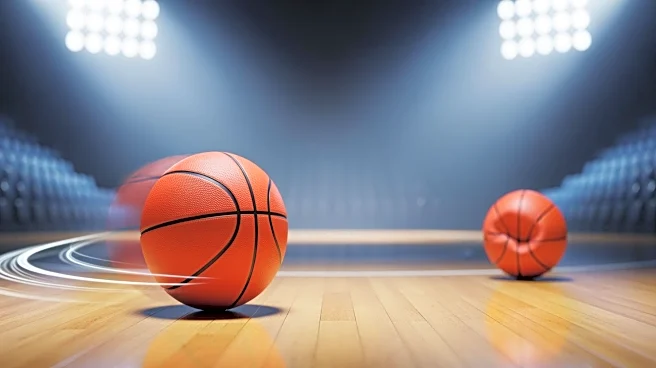What's Happening?
New York Yankees star Aaron Judge will not require surgery for his elbow injury, as confirmed by manager Aaron Boone. Judge sustained the injury in July, affecting his flexor tendon, but an MRI conducted
after the team's elimination from the playoffs indicated that surgery is unnecessary. Judge, who led the majors in batting average, OPS, and WAR, will continue his rehabilitation and strengthening exercises during the offseason. Meanwhile, Yankees pitcher Carlos Rodón underwent surgery to remove loose bodies and shave a bone spur in his left elbow, which will delay his start to the next season. Rodón is expected to refrain from throwing for eight weeks, potentially missing Opening Day.
Why It's Important?
The decision for Aaron Judge to avoid surgery is significant for the Yankees, as he remains a key player in their lineup. His ability to continue playing without surgical intervention ensures stability in the team's offensive capabilities. Judge's performance, including leading the league in several statistical categories, underscores his importance to the Yankees' success. On the other hand, Carlos Rodón's surgery and subsequent recovery period could impact the team's pitching rotation at the start of the season. The Yankees will need to adjust their strategy to accommodate Rodón's absence, which could affect their early-season performance.
What's Next?
Aaron Judge will focus on rehabilitation and strengthening exercises during the offseason to ensure he is ready for the next season. The Yankees anticipate Judge will continue as their everyday right fielder in 2026. For Carlos Rodón, the recovery process will involve eight weeks without throwing, followed by a gradual return to pitching activities. The Yankees will need to plan for his absence in the initial games of the season, potentially adjusting their pitching lineup to compensate. Additionally, the team is considering retaining Cody Bellinger as a free agent, which could further bolster their roster.
Beyond the Headlines
The Yankees' management decisions, including the handling of player injuries and potential roster changes, reflect broader strategic planning aimed at maintaining competitiveness in the league. The team's approach to player health and recovery, as well as their interest in retaining key players, highlights the importance of long-term planning in professional sports. These decisions could influence the team's performance and reputation in the upcoming season.









